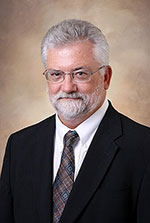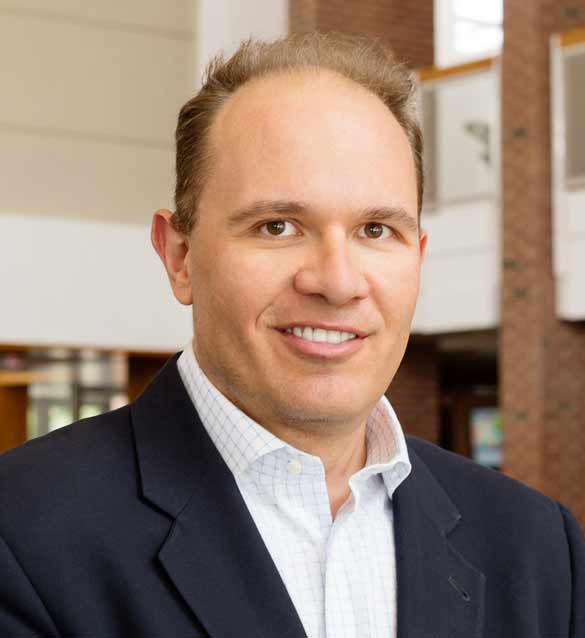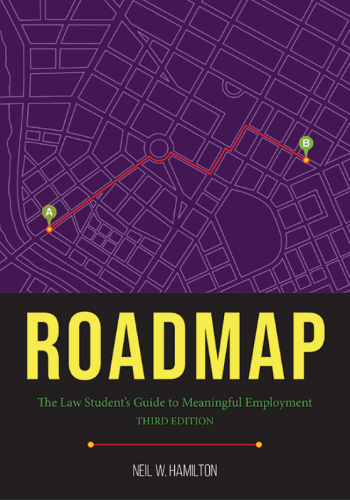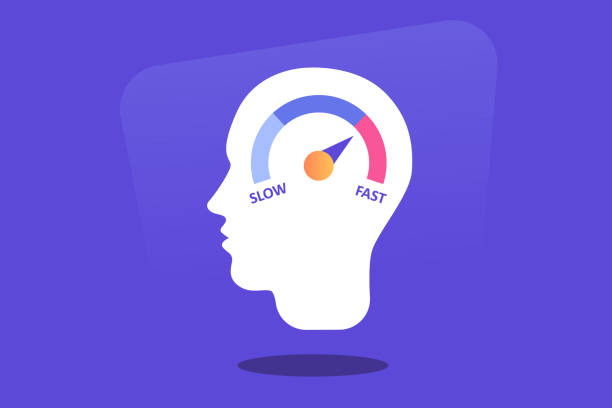James Leipold served as the executive director of NALP (National Association for Law Placement) for over 18 years. He now works as a senior advisor with the Law School Admission Council (LSAC). Leipold wrote a thorough review of Neil Hamilton’s Third Edition of the award-winning book, Roadmap: The Law Student’s Guide to Meaningful Employment, published by the ABA. Leipold’s detailed and insightful review can be found here.
Pro Bono
Breaking Down Siloes and Building Up Students: The Transformational Possibilities of Professional Identity Formation
By: David A. Grenardo, Professor of Law and Associate Director of the Holloran Center for Ethical Leadership in the Professions, University of St. Thomas School of Law
Three national leaders in professional identity formation—Lindsey P. Gustafson, Aric K. Short, and Robin Thorner—came together to author an exceptional article focused on professional identity formation. Their article, Breaking Down Siloes and Building Up Students: The Transformational Possibilities of Professional Identity Formation, will be part of the University of St. Thomas Law Journal’s spring 2023 symposium issue that will explore pedagogies relating to professional identity formation.
Here is the abstract of the article:
Under the ABA’s sequenced approach to implementation of Standard 303(b)(3), schools should now have developed plans for providing opportunities for professional identity formation and should be implementing them. These plans must provide students with an “intentional exploration of the values, guiding principles, and well-being practices considered foundational to successful legal practice.” In addition, these plans should provide for frequent opportunities for development, “during each year of law school and in a variety of courses and co-curricular and professional development activities.”
Because Standard 303(b)(3) is necessarily tied to the unique character, existing structures, and available resources of a law school, each school’s plan will be different. That has been our experience as we have worked as professional identity formation leaders in different roles with varying perspectives: Lindsey Gustafson at the William H. Bowen School of Law, University of Arkansas at Little Rock, is a current Associate Dean for Academic Affairs and a skills and doctrinal professor; Aric Short at the Texas A&M School of Law is a former Associate Dean for Academic Affairs, a doctrinal professor, and currently serves as the Director of the Professionalism and Leadership Program; and Robin Thorner at St. Mary’s University School of Law is an Assistant Dean for Career Strategy, a teaching adjunct, and the current Director of Professional Identity Formation.
In this essay, we hope to emphasize that professional identity formation efforts can occur all across the law school’s operations, from administrative offices to classrooms to voluntary student activities. We also provide specific examples of how schools can be more intentional and explicit as they weave together multiple professional identity formation opportunities for their students. This process takes time and attention, but it creates a powerful whole-building approach to identity formation that not only complies with 303(b)(3), but also best positions our students for a successful, fulfilling, and impactful career in law.
A link to the article can be found here.
Should you have any questions or comments about the article, please feel free to contact any or all of the authors at lpgustafson@ualr.edu, ashort@law.tamu.edu, and rthorner@stmarytx.edu.
Professional Responsibility and Professional Identity Formation in a Community of Practice with Alumni
By: David A. Grenardo, Professor of Law and Associate Director of the Holloran Center for Ethical Leadership in the Professions, University of St. Thomas School of Law
Every time a bell rings, an angel gets its wings…and Neil Hamilton finishes another article. Neil Hamilton, the Holloran Professor of Law and Co-Director of the Holloran Center for Ethical Leadership in the Professions at the University of St. Thomas School of Law, has completed a new professional identity formation article. Hamilton wrote his latest article for the University of St. Thomas Law Journal’s spring 2023 symposium on professional identity formation. Hamilton’s article explores a new approach to the required Professional Responsibility course that provides reasonable coverage of the law of lawyering, legal analysis, and compliance, but also helps each student understand and participate in a community of practice focused on all the discretionary calls of lawyering in the area of the student’s ultimate practice interest. The student sees that legal ethics knowledge and capacities are not just doctrinal knowledge and legal analysis but are also social and situated in a community of practice. The student also sees that many alumni of the law school are successful in the practice of law while living into the values of the law school and the profession, not just compliance with the minimum floor of the law of lawyering. The student will also understand that in any practice area, the experienced lawyers know who can be trusted and who are the jerks. It will be the student’s and new lawyer’s choice which path to take.
Part II(A) of the article first outlines that the ABA Model Rules of Professional Responsibility (adopted by all 50 states with some variation) codify some values of the profession (like competence, diligence, confidentiality, and loyalty) into the law of lawyering with which licensed lawyers must comply. Part II(A) also explains that many of the Rules give discretion to practicing lawyers with respect to choices about conduct above the floor of the Rules. Part II(B) then analyzes the core values in the mission and learning outcomes of some law schools, and in the Preamble to the Model Rules, that help guide each lawyer’s discretionary decision-making. Part III analyzes how communities of practice influence lawyers in making the discretionary calls of lawyering in a way consistent with the profession’s core values. Part IV explores empirical evidence on whether practicing lawyers think their legal education was an effective community of practice fostering their understanding of these core values in making the discretionary calls of lawyering. Part V discusses Hamilton’s own Professional Responsibility course that creates communities of practice with students and alumni to help students understand the importance of the law school’s and the profession’s core values in making the discretionary calls of lawyering.
A link to Hamilton’s article can be found here.

David Grenardo is a Professor of Law and Associate Director of the Holloran Center for Ethical Leadership in the Professions at the University of St. Thomas School of Law.
INTRODUCING THE STREAMLINED (AND EVEN MORE LAW-STUDENT FRIENDLY) THIRD EDITION OF NEIL HAMILTON’S AWARD-WINNING BOOK, ROADMAP: THE LAW STUDENT’S GUIDE TO MEANINGFUL EMPLOYMENT (2023)
By: Neil Hamilton, Holloran Professor of Law and Co-Director of the Holloran Center for Ethical Leadership in the Professions, University of St. Thomas School of Law
The learning outcome for the ROADMAP is that each student takes ownership (self-direction) over the student’s professional development toward the student’s goals of bar passage and meaningful post-graduation employment. Students at later stages of self-direction demonstrate higher academic performance and planning and implementation skills that increase bar passage and post-graduation employment outcomes. The ROADMAP is empowering each student to perform at the student’s highest capacity. The ROADMAP is also meeting ABA Standard 303(b) and (c) requirements regarding the development of each student’s professional identity.
This third edition of the ROADMAP is a complete revision of the second edition. Since the first edition was published in 2015, and the second edition in 2018, the Holloran Center and I have continued to learn how more effectively to go where the students are developmentally to help them achieve their goals (and the Law School’s goals) of bar passage and meaningful post-graduation employment.
The entire book is now 50 pages at a price of $19.95 (ABA’s website indicates ordered books will ship on August 15 at the earliest). In this edition, the students read 21 pages and then do the template plan which is 5 pages. The reading and the template plan focus on using the student’s time inside and outside of the building to gain experiences that will achieve three goals:
- Thoughtfully discern the student’s passion, motivating interests, and strengths that best fit with a geographic community of practice, a practice area and type of client, and type of employer;
- Develop the student’s strengths to the next level; and
- Demonstrate evidence of the student’s strengths that employers value.
The book then has a chapter on building a tent of professional relationships that helps each student achieve these three goals plus a professional relationship tent-building template plan. This chapter also includes cross-cultural skills addressing ABA Standard 303(c).
A number of law schools already use the ROADMAP, and the hope is that other law schools will discover its incredible value in helping law students with their professional identity formation. To discover what the ROADMAP can do for your law students, you can find the book here.

Neil Hamilton is the Holloran Professor of Law and Co-Director of the Holloran Center for Ethical Leadership in the Professions at the University of St. Thomas School of Law in Minnesota.
By: Dawn Figueiras, Assistant Professor of Law, Associate General Counsel, Chair of the Curriculum Committee, Appalachian School of Law
A year ago, the Curriculum Committee of Appalachian School of Law (ASL) was diligently creating an Implementation Plan for complying with the ABA’s revised Standards 303(b) and (c). After adoption by ASL’s Faculty on August 16, 2022, the Plan was published in the first post of the Holloran Center Professional Identity Implementation Blog. One year later, we report on our progress.
Our Implementation Plan, to be deployed in academic year 2023-2024, included retention of several existing aspects of ASL’s curriculum, including administration of the Professionalism Oath to incoming students during orientation and participation in an Externship placement during the summer following 1L year with journaling to document experiences and self-reflections. Additions to ASL’s program included a new “Professionalism, Leadership, and Transition to Practice” (PLT) program designed, respectively, for 1L, 2L, and 3L students. Programs already scheduled for the upcoming Fall semester include a two-day visit by Virginia State Bar President Chidi James and a joint visit by executives of the Virginia Trial Lawyers Association and Virginia Association of Defense Attorneys who will conduct talks with 1Ls about professionalism and with 2Ls about leadership.
The Implementation Plan included re-working ASL’s 1L “Introduction to Community Service” course into “Building a Professional Identity,” which would focus on professional identity development, well-being, and incorporating community service/pro bono service into a law career. This new course will be included as a required 1L course beginning Fall semester, 2023.
One aspect of ASL’s Plan proved more difficult to implement. A visit to a federal court during/near orientation hasn’t been accomplished yet. But even though ASL couldn’t bring the students to a court, we brought a court to the students! In April 2023, ASL hosted a panel of the United States Court of Appeals for the Fourth Circuit for oral arguments, comprised of then-Chief Judge Roger Gregory, Judge Albert Diaz (now Chief Judge), and Judge Stephanie Thacker.[1] ASL students watched attorneys argue two civil cases and one criminal case before the panel, and had several opportunities for interaction with the judges and their clerks. Spring semester, 2024, will see ASL hosting the United States Court of Appeals for Veterans Claims for oral arguments, dinner with students and faculty, and a networking social event with the judges and their clerks.
ASL’s Implementation Plan called for faculty to incorporate aspects of revised Standard 303(b) and (c) into their courses whenever possible. ASL conducted a curriculum survey[2] of all full-time and adjunct faculty at the conclusion of Spring semester, 2023, for all courses taught during the 2022-2023 academic year. This survey included specific questions about the inclusion of activities, discussions, and exercises that provided opportunities related to revised Standard 303(b) (“to engage in thoughtful self-reflection on the development of a professional identity that utilizes the student’s unique aptitudes and capacities” or “PIF”) and 303(c) (“demonstrating the ability to effectively build professional relationships across racial and cultural differences and to engage in culturally competent interactions” or “cross-cultural competency”).
Of the fourteen required 1L courses, 50% reported already incorporating PIF elements (including Intentional Torts and Criminal Law), and 43% reported already incorporating cross-cultural competency elements (such as Introduction to Externships and Legal Process II). 66% of the six required 2L courses incorporated PIF (e.g., Constitutional Law II and Criminal Procedure) and 33% incorporated cross-cultural competency elements (including Constitutional Law I and Professional Responsibility). Of the three required 3L bar preparation courses, 66% incorporated PIF elements but none incorporated cross-cultural competency elements. The Implementation Plan anticipated that several elective courses would incorporate PIF and/or cross-cultural competency elements, but the survey revealed higher results than expected. Of the 40 elective courses surveyed, 24 courses (60%) incorporated PIF elements (such as Administrative Law; Conflicts; and Employment Law) and another 24 courses (60%) incorporated cross-cultural competency (e.g., Poverty, Health & Law; Marijuana Law; and Information Privacy Law); 23 courses incorporated both (including Family Law; Sentencing; and History of Race & the Law). Notably, of the eleven elective experiential learning courses, ten (91%) incorporated PIF (such as Criminal Practice and The Law of Starting a New Business) and nine (82%) incorporated cross-cultural competency (e.g., Estate Planning and Trial Advocacy).
Even before the full deployment of its Implementation Plan, ASL “provid[ed both] substantial opportunities to students for the development of a professional identity” and also “education to law students on bias, cross-cultural competency, and racism.” ASL is pleased with its progress on meeting revised ABA Standard 303, and looks forward to fine-tuning and fully-employing its Implementation Plan for even greater integration of PIF and cross-cultural competency into its J.D. program.
Should you have any questions or if you would like to discuss the implementation of ASL’s plan, then please contact me at dfigueiras@asl.edu.
[1] See https://www.ca4.uscourts.gov/oral-argument/oral-argument-calendar/earlier-court-terms.
[2] This Curriculum Mapping Survey was primarily designed to gauge how ASL is meeting its Learning Outcomes and secondarily to assess the curriculum’s readiness for the NextGen Bar Exam.

Dawn Figueiras is an Assistant Professor of Law, the Associate General Counsel, and Chair of the Curriculum Committee at Appalachian School of Law.
If You’re Looking for Professional Identity Formation Resources, Then You’ve Come to the Right Place
By: David A. Grenardo, Professor of Law and Associate Director of the Holloran Center for Ethical Leadership in the Professions, University of St. Thomas School of Law
The Holloran Center for Ethical Leadership in the Professions at the University of St. Thomas School of Law (Minnesota) strives to share as many resources with others as possible. In an effort to make resources even more accessible, the Holloran Center has revamped its website to deliver those resources in a user-friendly manner.
The home page of the Holloran Center website begins with links (on the right side of the page) to (1) short, useful definitions of professional identity and professional identity formation, (2) three articles that explain the ABA’s changes to its standards 303(b) and (c), and (3) two groundbreaking articles on law students’ well-being.
As you scroll down the home page, four major links can be found under the heading “How to Get Started”: (1) Get to Know the Holloran Center, (2) Review Changes to Standard 303, (3) Explore our Tools and Resources, and (4) See Our Research and Training. Each of these four major categories is discussed below.
The first major link, Get to Know the Holloran Center, takes the user to a page that features the leadership team of the Holloran Center, including its Co-Directors Neil Hamilton and Jerry Organ, along with me, and the Holloran Center Fellows, Barbara Glesner Fines, Kendall Kerew, and Lou Bilionis. It also includes links to pages about Tom Holloran, who is the inspiration and namesake of the Center, along with a Donors and Partners page.
The second major link, Review Changes to Standard 303, leads to a page that includes (1) a list of existing entry ramps for schools to incorporate professional identity formation and (2) a link to an open access book – Law Student Professional Development and Formation: Bridging Law School, Student, and Employer Goals – that provides a straightforward and detailed look at the changes to 303(b) and (c) and suggestions regarding how to comply with those standards, and (3) the introductory materials mentioned above (short definitions of PI and PIF and three short articles about the changes to the ABA standards).
The third major link – Explore our Tools and Resources – brings up three more links on that topic: Learning Outcomes Database; Holloran Competency Milestones; and Professional Development Database.
The Learning Outcomes Database contains a searchable list of all law school learning outcomes that were available on law school websites as of January 2022. The Holloran Center identified those law schools with “basic” learning outcomes – those that recite the language of Standard 302 and nothing more. The Holloran Center also identified those law schools with more robust learning outcomes than required by the language of Standard 302.
The Holloran Competency Milestones are rubrics that describe the various stages of development associated with learning outcomes. In other words, they provide a tool to assess whether (and to what extent) law students are reaching learning outcomes in a variety of areas, including the following:
- Active Listening
- Cultural Competency
- Commitment to Pro Bono
- Good Judgment
- Grit and Resilience
- Growth Mindset
- Integrity
- Leadership
- Professional Communication
- Reflection
- Self-Directedness
- Teamwork/Collaboration
The Professional Development Database list includes 62 first-year, required, law school professional development initiatives based on information from law school websites as of November 2019. This list, as well as the Learning Outcomes Database, are currently being updated by research assistants for the Holloran Center. The updates should be available by September 1, 2023.
The fourth major link, See Our Research and Training, consists of three links itself. The first is the Roadmap for Employment, which is the award-winning book that provides a template for law students to use throughout all three years of law school to be fully prepared to find meaningful employment upon graduation. ABA Books will publish the substantially revised third edition of Roadmap on August 1st of this year; the latest edition is streamlined and even more law-student friendly at 51 pages total.
The second link under Research and Training, Coach Training, offers coaching tips and a guide to perform one-on-one coaching with law students, which is the most effective method to foster each student’s professional growth. The third link contains extensive Research on Professional Formation in multiple areas, such as professional formation overview, the importance of professional formation, promoting student self-direction, fostering a fiduciary mindset, assessing student professional development, legal education observations, and law student well-being and satisfaction.
As you scroll down the home page, there is a link to the Holloran Center Professional Identity Implementation Blog, which features useful and creative articles by contributors from law schools across the entire country.
Scrolling down further on the home page one will find several of the four major links described above.
We are thankful for the excellent work of Carrie Hilger at the University of St. Thomas School of Law and the University of St. Thomas IT Department in revising the Holloran Center website. We are particularly grateful to Skylar Peyton, a rising 3L at the University of St. Thomas School of Law, whose attention to detail, work ethic, and dedication helped to vastly improve the website.
The Holloran Center hopes that its website continues to serve as a valuable hub for free and accessible professional identity resources that can benefit law schools across the nation.
Should you have any questions or needs, please feel free to contact us.

David Grenardo is a Professor of Law and Associate Director of the Holloran Center for Ethical Leadership in the Professions at the University of St. Thomas School of Law.
Student Professional Identity Formation and the Foundational Skill of Building a Tent of Professional Relationships to Support the Student
By: David A. Grenardo, Professor of Law and Associate Director of the Holloran Center for Ethical Leadership in the Professions, University of St. Thomas School of Law
Neil Hamilton, who is the Holloran Professor of Law and Co-Director of the Holloran Center for Ethical Leadership in the Professions at the University of St. Thomas School of Law, has authored yet another influential and practical article on professional identity formation. Hamilton’s latest article, which is forthcoming in the Wake Forest Law Review, is a guide for law faculty and staff who want each student to build a tent of professional relationships – a professional network – who both support the student and trust the student to do the work of a lawyer. The importance of professional networks for work performance and career opportunities has been well-established in hundreds of empirical studies. In addition, a growing research literature is documenting that the creation of a professional network requires pro-active networking behaviors, which are defined as an individual’s efforts to develop and maintain professional relationships with others who can potentially provide assistance to them in their career or work.
For some students (and lawyers), “networking” with a clear purpose of strengthening support for the student’s professional goals feels inauthentic, impure, and perhaps even dirty. To avoid this negative connotation, Hamilton’s article uses “building a tent of professional relationships who support the student and trust the student to do the work of a lawyer.” This framing, in Hamilton’s experience, fits within the students’ natural understanding of the importance of social support for each person, including the student, and feels authentic and less instrumental to the students.
A link to Hamilton’s article can be found here.

David Grenardo is a Professor of Law and Associate Director of the Holloran Center for Ethical Leadership in the Professions at the University of St. Thomas School of Law.
By: Linda Sugin, Professor of Law & Faculty Director for the Office of Professionalism, Fordham Law School
The three-part series published in the National Law Journal, “Does Law School Have to Suck?,” analyzes seven reasons why law students are unhappy. In the series, I also propose changes that law schools and the legal profession should adopt to transform the student experience by reforming curriculum, assessment, hiring, and financing. The solutions advocated reflect two major themes – creating inclusive and supportive communities and individuating the development of professional identity for law students. These reforms would improve learning and help students build a wider range of capabilities necessary for professional success and satisfaction.
Here is a link to the three-part series published in the National Law Journal on March 30, April 4, and April 6, 2023. Feel free to contact me at lsugin@fordham.edu with questions or comments.

Linda Sugin is Professor of Law & Faculty Director for the Office of Professionalism at Fordham Law School in New York.
By: Pat Longan, William Augustus Bootle Chair in Ethics and Professionalism, Director of the Mercer Center for Legal Ethics and Professionalism, Mercer University School of Law
At Mercer University School of Law, we use virtue ethics to teach professional identity. We have drawn on the dozens of professionalism codes and creeds adopted by courts and bar associations over the last thirty-five years and distilled from them the virtues that a lawyer needs. Those virtues are excellence, fidelity to the client, fidelity to the law, public spiritedness, civility, and practical wisdom. Our students learn of the roots of this approach in Aristotelian ethics. We are convinced that this is the best approach to professional identity. Indeed, I have written elsewhere that professional identity is virtue ethics by another name.
There is sometimes a problem in getting this message across. Some lawyers and some law students recoil at the mention of “virtue.” To them, it sounds preachy. Then when we utter the word “Aristotle,” their eyes begin to roll at these academics who are revealing how detached they are from the everyday world of lawyering. (You don’t want to know what they say and do if you use the word “Aristotelian.”) With these audiences, we need another way to convey the key insights of virtue ethics for the professional identities of lawyers without using what they will hear as off-putting academic mumbo-jumbo.
My answer is to make an analogy to the Nobel Prize-winning work of Daniel Kahneman (done in collaboration with Amos Tversky, who died before he could share in the Nobel). Professor Kahneman popularized their work in Thinking, Fast and Slow, which was published in 2011 and has sold more than 2.6 million copies.
Kahneman explains two ways in which people make decisions. Some come from “System 1,” which “operates automatically and quickly, with little or no effort and no sense of voluntary control.” System 1 engages in “thinking fast.” Other decisions come from “System 2,” which “allocates attention to the effortful mental activities that demand it …. The operations of System 2 are often associated with the subjective experience of agency, choice, and concentration.” System 2 controls “thinking slow.”
For lawyers, the analogy to “thinking fast” is the cultivation of habits and dispositions. Take habits first. Part of a lawyer’s professional identity is excellence. An excellent lawyer shows up on time and meets all deadlines. In the busy life of a practicing attorney, this does not happen because the lawyer sits back and reflects deeply on the need to be punctual for meetings and court appearances. It does not happen because the lawyer takes the time to contemplate each filing deadline and ponder over the importance of meeting it. These parts of excellence emerge when the lawyer cultivates the right habits.
Of course—just between us—much of virtue ethics is about the cultivation of good habits. But habit formation also fits into the more digestible “thinking fast” framework.
As professors, we have enormous power to help our students cultivate the right habits. In our mandatory professional identity course at Mercer, punctuality is rigidly enforced. Students may not enter any class late without advance permission, no matter the reason. When they show up late and miss class, they must explain why and are required to come up with a plan to prevent tardiness in the future. For some, it is simply a matter of setting another alarm. For others, it is starting a long commute much earlier in case of traffic. Regardless of the details, they are developing the habit of punctuality, one of the habits that supports excellence.
We do something similar with the habit of meeting deadlines. The students know that by 8 a.m. every Monday they must complete a writing assignment on Mercer’s learning management system. The assignment closes automatically at 8 a.m. Any students who are late with the assignment must contact me, and I require them to come up with a plan to avoid late submissions in the future. They are cultivating a habit of attentiveness to deadlines, another habit that supports excellence.
In other situations, a lawyer must deal immediately with a problem—they must be ready to “think fast”—and something more than habit is needed. For example, a lawyer may unexpectedly encounter discourtesy or a lack of cooperation from opposing counsel. The lawyer must be prepared to respond appropriately to incivility in the moment. There is no time to reflect on a “Lawyer’s Creed” or an “Aspirational Statement on Professionalism.” The natural tendency (especially for someone like me who grew up with three older brothers) is to return fire. Incivility begets incivility, and the atmosphere quickly becomes toxic. Litigation slows down. It becomes more expensive for the clients and more unpleasant for clients and lawyers alike.
Virtue ethics would say that the lawyer who is the target of the discourtesy should deploy the virtue of civility and break the cycle. How do you prepare students and lawyers to do that when there is no time to think when a fellow lawyer is snide in a deposition, and when these students and lawyers are the ones who roll their eyes at the notion that Aristotle has anything to say about it?
The answer is to introduce the concept of a “disposition,” in the sense of one’s natural inclination to act in a particular way in response to a particular situation. Again, the terminology sometimes can get in the way because lawyers and students think that, by “disposition,” we mean a mood or characteristic attitude, as in “he has a grumpy disposition.” Students understand the concept better if you describe a disposition as a “default setting.” A lawyer whose default setting is not to be surprised or angered at another’s incivility, and who is therefore disposed not to respond in kind to discourtesy, is much more likely to defuse rather than escalate a conflict with an uncivil adversary. There is time before the fact to reflect and decide on what your disposition should be. Having the right disposition then enables the lawyer to do the right thing in the moment when there is no time to ponder. The lawyer is “thinking fast.”
Cultivating such a disposition or default setting in students requires some work. We first have to expose them to the toxin of incivility by having them watch or listen to examples. For many, their natural response to this surprising prospect is fight or flight. With time and effort, we can help them understand the inevitability of encountering these situations, the harm that flows from them, and some strategies for dealing with them. We must “think slow” with them at first. But the ultimate goal is to send them out into the world prepared to encounter others’ incivility and become naturally disposed not to respond in kind. Their professional identity will include an internal commitment to maintaining civility even in difficult and infuriating moments, because they have the right “default setting” or “disposition.”
Lawyers must also, of course, be able to “think slow.” An essential component of professional identity is the cultivation of the “master virtue” of practical wisdom, which enables lawyers to chart or recommend a course of action in uncertain circumstances when multiple goals are in conflict. Again, terminology can get in the way. Lawyers and law students may tune out to the mention of a “master virtue” or “practical wisdom” (don’t ask what they do if you use the word “phronesis”). But the need for practical wisdom translates easily into the need for good judgment, and no lawyer or law student will roll their eyes at the proposition that lawyers need good judgment.
Teaching judgment is harder than teaching punctuality. We use small group (25 to 30 students) weekly meetings in which we discuss a series of “practical wisdom” exercises and put the students in role to exercise judgment about what to do and how to do it. (These exercises are available at https://law.mercer.edu/academics/centers/clep/education.cfm). All of them present circumstances where there is time to “think slow,” work through different possibilities, and contemplate what might follow from each option. We train them to ask and answer the question, “what if I do this?” as part of the exercise of good judgment.
For example, one problem requires the students to decide (in the role of a junior non-equity partner in a large law firm) what, if anything, to do when they suspect a senior partner
of overbilling a client. The junior partner might choose to do nothing, talk to the partner, or report her suspicions within the firm. For each possibility (and any others the students generate), their preparation for the discussion includes how to go about implementing the decision, as well as the anticipated consequences of each decision, and a plan for dealing with those possible consequences.
For a lawyer to have the right kind of professional identity, the lawyer must cultivate the right virtues. Aristotle and his virtue ethics are powerful tools for helping law students get started on the right path. For skeptical students and lawyers, the concept of professional identity as “thinking fast and slow” may be more relatable. The need to cultivate the rights habits and dispositions, and to learn to exercise good judgment, are things we all should be able to agree on, regardless of the terminology.
Please feel free to contact me at longan_p@law.mercer.edu if you any questions or comments.

Patrick Longan is the William Augustus Bootle Chair in Ethics and Professionalism in the Practice of Law at Mercer University School of Law
and is Director of the Mercer Center for Legal Ethics and Professionalism
Laying the Foundations of Professional Identity Formation with All First-Year Law Students
By: Greg Miarecki, Executive Assistant Dean for Career Planning and Professional Development,
Director of the University of Illinois College of Law Leadership Project, University of Illinois College of Law
As we are now well into the spring semester at the University of Illinois College of Law, professional identity formation is front and center for our entering students. In the spring of 2015, we introduced a required 1L course—Fundamentals of Legal Practice. Fundamentals was originally designed to address many issues that many of us refer to as “professional identity formation” or “ABA Standard 303” issues. When I first designed the course, I labeled the course with a bit of oversimplification—it “teaches what you need to be a successful lawyer, but that many law schools don’t really care about and most students don’t really know about.” It’s a required, one-credit pass/fail course taught in the spring semester. I’ve served as the course instructor since the course began, and have tweaked it continually over the years. I’ve experimented with different sessions, different guest speakers, and different modes of instruction. I’ve always found this course challenging to teach because students come to law school with their own views on professional identity formation topics, and they often are resistant to discussing them in law school—typically arguing that “I already know this stuff.”
This year’s edition of Fundamentals begins with a session styled the “business of law,” which provides an overview of different practice areas and the skills and traits usually seen in successful lawyers in those practice areas. We follow those up with sessions on communication skills, project management skills, and wellness. We added the wellness and project management pieces this year. I was particularly focused on adding a wellness component, so that we could support our students who were running into “speed bumps” during their 1L year, often in the form of lower than expected grades.
The next tranche of classes features lessons in marketing, relationship building, personal branding, client service, and the importance of pro bono service. Marketing and branding are especially important to our Office of Career Planning and Professional Development given that many 1Ls are in the midst of their summer job search. And client service, as many of us former practicing lawyers know, can be the majority of what a lawyer does on a daily basis.
Following these sessions, we offer three separate sessions on leadership—an overview session, followed by a session highlighting the importance of diversity, equity, and inclusion in leadership, and a session on leadership in the non-profit sectors. We added the latter two sessions last year and they’ve been great additions. During each of these sessions, we bring in leaders in our profession to engage with the student on these topics. The final session of Fundamentals, titled “A View From the Bench”, features a number of judges commenting on the importance of the class and the topics we cover. This is always the most popular session in the course.
For two years, we taught the class virtually. I thought it was a great innovation because it allowed me to bring in guests from around the world to interact with our students, giving me the ability to offer a more diverse set of speakers. Now, with the return to in-person classes, I took the opportunity to involve our faculty members more heavily in the sessions. And it turns out, I like the class even better now—it’s been great to have so many colleagues in our building take part in the professional identity formation of our students.
I love teaching this course because there’s always something new to learn, and always a way to tweak it and improve the class. And by now, we have many hundreds of alumni who can attest to how the lessons they learned in Fundamentals made a difference (some big, some small) in their careers. If you haven’t designed a formal professional identity formation class for your incoming students, I hope you’ll consider doing so—you’ll be impressed with how much value it can generate for your students. Be ready for it to have flaws and imperfections—you’ll always find new ones every year!
I would welcome the chance to discuss Fundamentals with anyone who’s interested. Please feel free to contact me at miarecki@illinois.edu.

Greg Miarecki is the Executive Assistant Dean for Career Planning and Professional Development and the Director of the University of Illinois College of Law Leadership Project at the University of Illinois College of Law.








